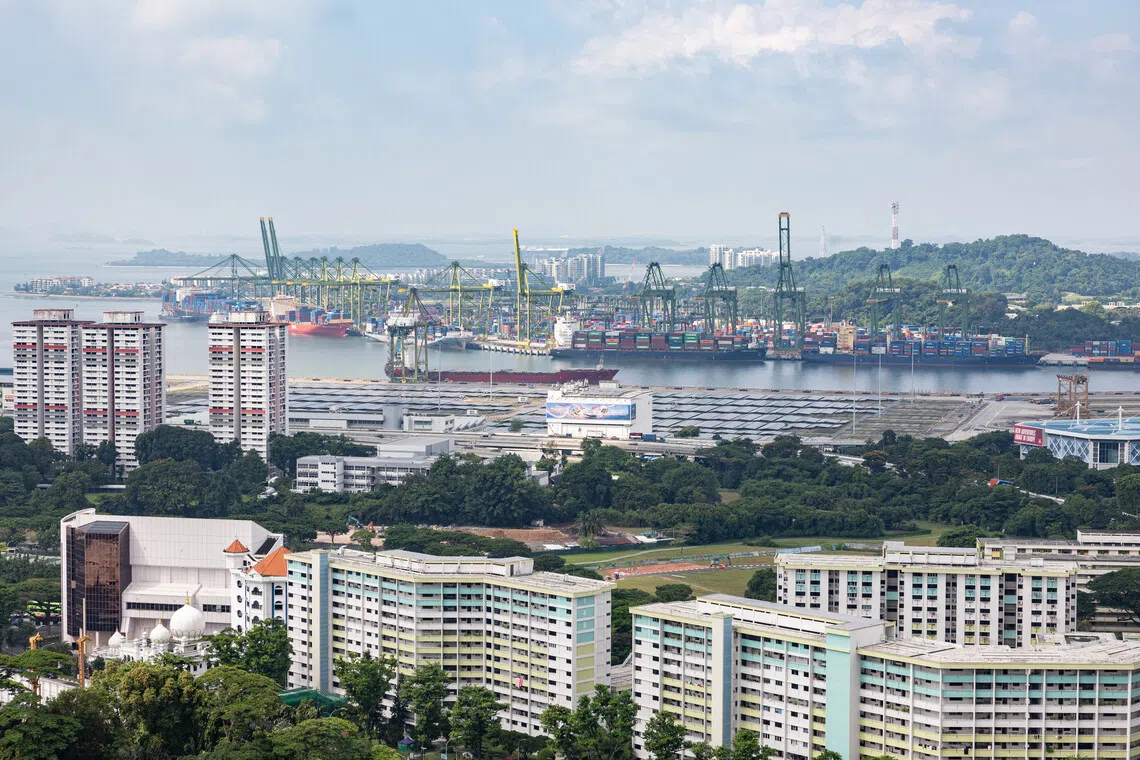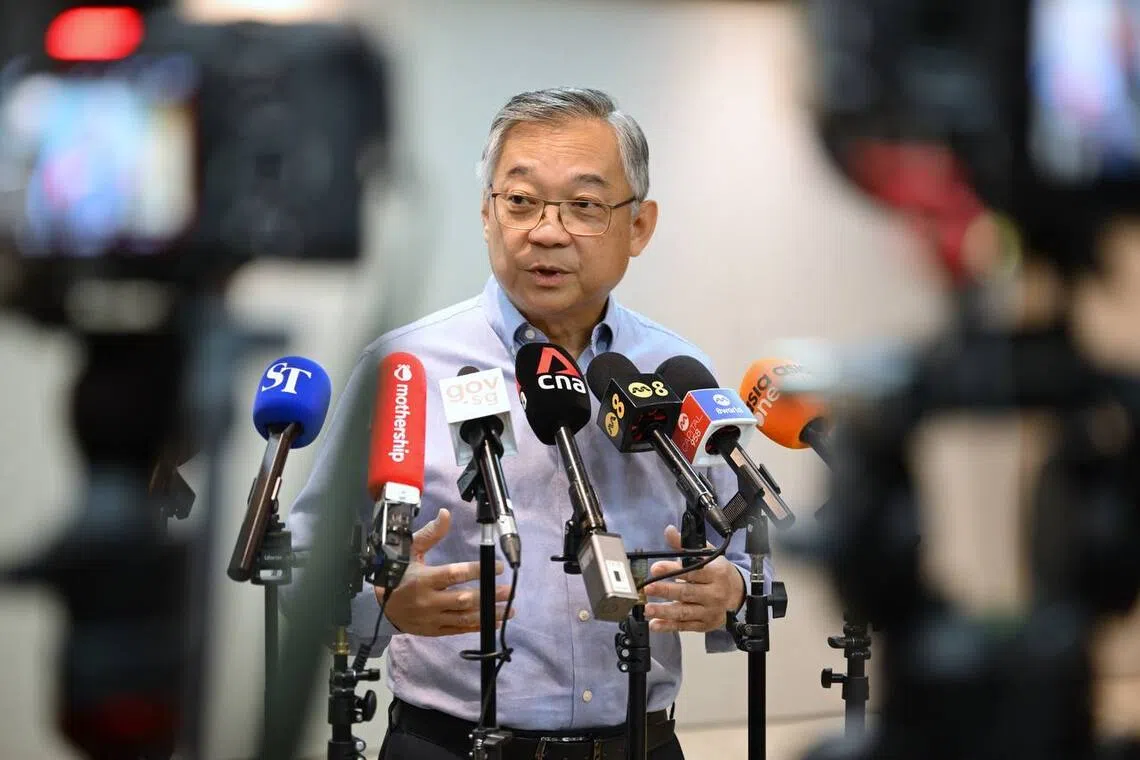Pharma firms still keen to grow in S’pore but investment climate will get more competitive: DPM Gan
Sign up now: Get ST's newsletters delivered to your inbox

Experts had earlier said while the immediate impact to Singapore could be mild, future investments could be diverted away from the Republic.
ST PHOTO: BRIAN TEO
Follow topic:
SINGAPORE - Pharmaceutical companies here with plans to invest in the US are committed to growing in Singapore, but tariff threats could raise competition for investment dollars in the long run, Deputy Prime Minister Gan Kim Yong said.
“Many of these plans (to invest in the US) are not directly in competition with Singapore because many of them are still building capacity in Singapore. That is encouraging and comforting,” Mr Gan told reporters at a press conference on Sept 27.
This comes after US President Donald Trump on Sept 25 announced sweeping new tariffs
Most pharmaceutical exports from Singapore are branded and patented products. Pharmaceutical exports account for around 13 per cent of Singapore’s exports to the US, amounting to about $4 billion, DPM Gan said.
However, he added that many pharma companies operating in the Republic already have plans to build factories in the US, which could exempt them from the levy.
DPM Gan said: “They are now seeking clarification on whether they will be eligible and qualified for this exemption. If it is confirmed that they are eligible... I think they will be exempted from the tariff.”
Pharmaceutical and biotechnology companies have pledged around US$325 billion (S$420 billion) in manufacturing expansions in the US, according to a White House tally.
Top investors Johnson & Johnson, AstraZeneca and Roche, which pledged investments to the tune of US$50 billion or higher, also have operations in Singapore.
Johnson & Johnson does not have a factory in Singapore, but it established its Asia-Pacific headquarters at the Science Park in 2018. In 2023, it announced an effort to support early-stage companies in their discoveries in the fields of innovative medicines, medical technologies and healthcare solutions, in collaboration with the Economic Development Board.
AstraZeneca is building a $2 billion manufacturing facility
Meanwhile, Roche’s presence in Singapore spans pharmaceuticals and diagnostics, as well as two biologics manufacturing sites.
Mr Gan, who is also the Minister for Trade and Industry, added that the bigger concern was the impact of tariffs on the overall investment climate.
Markets like Japan, South Korea and the European Union have made investment commitments to the US that extend beyond the pharmaceutical sector, Mr Gan said.
He added: “Some of these investments, the resources, the funds could have been targeted at investing in Singapore and in this region, but now they have to be diverted to the US in order to meet the demands.
“I think this in the longer term will shift the investment pattern, and the investment environment will become even more competitive.
“That is also why we need to double down on our investment promotion, to target specific investments to attract them to Singapore.”
Experts had earlier told The Straits Times

Deputy Prime Minister Gan Kim Yong said tariff threats could raise competition for investment dollars in the long run.
ST PHOTO: NG SOR LUAN
Mr Gan pointed to the Economic Strategy Review that is aimed at strengthening the long-term resilience and competitiveness of the Singapore economy.
He added that the Business Adaptation Grant, to be launched by October, will also help companies adjust to the new tariff environment.
It will be capped at $100,000 per company and requires co-funding by firms, with small and medium-sized enterprises receiving a higher level of support.
Mr Gan said discussions with the US administration on pharmaceuticals and semiconductors will continue.
“The discussion will take time because there are many details that need to be worked out,” he said.
“I am continuing my engagement with (US Commerce) Secretary (Howard) Lutnick, and I will give an update at the appropriate time.”

